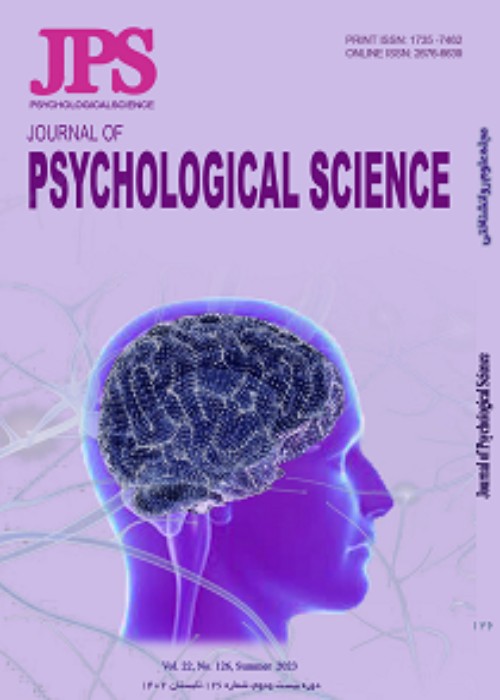The effectiveness of cognitive therapy based on dogas model of morbid morbidity, severity of symptoms and causative factors of diffuse anxiety disorder in patients with diffuse anxiety disorder
Few studies have studied the effectiveness of the Dagas model and the effect of the variables that cause the Anxiety disorders, and most researchers have focused on the factors that maintain and sustain the Anxiety disorder. However, there is a research gap in the effectiveness of cognitive therapy based on Dogas model of morbid morbidity, severity of symptoms and causative factors of diffuse anxiety disorder in patients with diffuse diffuse anxiety disorder.
To evaluate the effectiveness of cognitive therapy based on Dogas model of morbid morphology, severity of symptoms and causative factors of diffuse anxiety disorder in patients with diffuse anxiety disorder.
The research was semi-experimental (pre-test, post-test and follow-up) with the control group. The statistical population of the study was all people with diffuse anxiety disorder who referred to Isfahan counseling centers from May to October 2017. Thirty people were selected by available sampling method and randomly assigned to two experimental and control groups (15 people). Research tools include the Pennsylvania State Concerns Questionnaire (Mayer et al., 1990), the Short Scale for Measuring Comprehensive Anxiety Disorder (Sprptzer et al., 2006), the Uncertainty Uncertainty Scale (Freeston et al., 1994);, 2009), Why Worrying Concerns (Hulka et al., 200), Negative Orientation Questionnaire (Gozlin et al., 2005) and twelve 90-minute cognitive therapy sessions based on the Dougas model (Dougas and Rubichaud, 2012). Data analysis was performed by covariance test and Crowit Machli test.
Dagas cognitive therapy on pathological anxiety, severity of GAD symptoms, and GAD etiological factors (negative orientation to the problem, intolerance of uncertainty, cognitive avoidance and positive beliefs about Concern had a significant effect (P< 0/05).
Patients who participated in Dagas cognitive therapy sessions had a lower incidence of morbid anxiety, severity of symptoms, and GAD.
- حق عضویت دریافتی صرف حمایت از نشریات عضو و نگهداری، تکمیل و توسعه مگیران میشود.
- پرداخت حق اشتراک و دانلود مقالات اجازه بازنشر آن در سایر رسانههای چاپی و دیجیتال را به کاربر نمیدهد.


